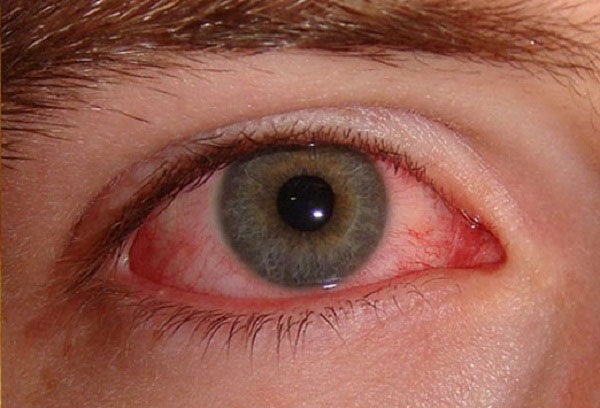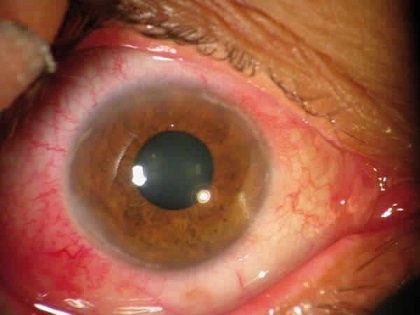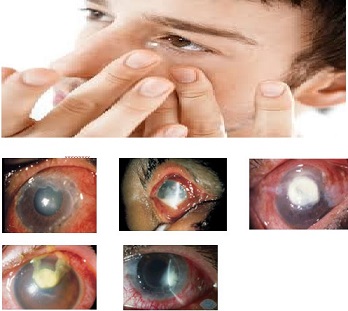
The risks associated with contact lens wear are the same for all types of contact lenses (eg, rigid, soft, extended wear, daily wear) that are worn. Wearing contact lenses increases the risk for several serious conditions, including eye infections and corneal ulcers.
These conditions can develop quickly; in rare cases, they can even result in blindness. The degree of risk is different for daily wear vs extended/overnight wear, as well as for different types of lens materials.
Risk is defined by the most serious adverse event that can occur, which in the case of contact lenses is microbial keratitis. A prospective study was conducted to determine the incidence of contact lens-related microbial keratitis in Australia.
 The study evaluated the incidence of microbial keratitis, as well as the rates of microbial keratitis among various modes of contact lens wear (daily wear, daily disposable, and extended wear) and types of contact lens materials (conventional hydrogel, silicone hydrogel, and gas permeable).
The study evaluated the incidence of microbial keratitis, as well as the rates of microbial keratitis among various modes of contact lens wear (daily wear, daily disposable, and extended wear) and types of contact lens materials (conventional hydrogel, silicone hydrogel, and gas permeable).
The investigators reported on 151 cases of contact lens-related microbial keratitis; of the ophthalmic practitioners who participated in this study, 81% responded. The rates obtained were based on a denominator of 10,000 contact lens wearers.
They found that 7.5% of wearers were using daily disposable contact lenses and 9.3% were using silicone hydrogel contact lenses. The annual incidence of all contact lens-related microbial keratitis was 4.8 per 10,000 wearers. The annual incidence of moderate or severe culture-proven keratitis was 0.9 in daily disposable contact lens users, 3.1 in daily-wear soft contact lens users, 4.5 in daily-wear silicone hydrogel contact lens users, 11.7 in extended-wear soft contact lens users, and 19.3 in extended-wear silicone hydrogel contact lens users.
Vision loss after microbial keratitis occurred more frequently with extended-wear soft contact lenses compared with extended-wear silicone hydrogel contact lenses.
Microbial keratitis with extended-wear silicone hydrogel contact lens use seemed to be associated with a longer duration of continuous use than in extended-wear soft contact lens use;, meaning that study participants were wearing silicone hydrogel lenses longer before they developed microbial keratitis compared with those who were wearing conventional soft contact lenses.
Vision loss from microbial keratitis may be permanent. It all depends on when the diagnosis is made. If it is caught early and diagnosed properly followed by treatment, there may be no ulceration or scarring. (The scarring that develops from the corneal ulcer can cause permanent vision loss.) If the ulcer is centrally located in the cornea, permanent vision loss may occur, depending on how deep and invasive the ulcer is.
The important thing to convey is that despite the low rates obtained in a study, we have to be concerned about the individual contact lens wearer. If it happens to you, the rate is 100%! One can develop microbial keratitis as soon as the first night of wearing an extended-wear lens.
It depends on the individual, the immune system, the natural flora in the tear film, and personal hygiene habits. All of those factors could come into play. So while it’s not common that microbial keratitis happens, the potential exists.
You could wear contact lenses for many years and never have a problem, and then suddenly develop microbial keratitis. Diligence regarding proper care and hygiene and regular follow-up with an eye care provider is critical to reduce the risk for any serious adverse event.




